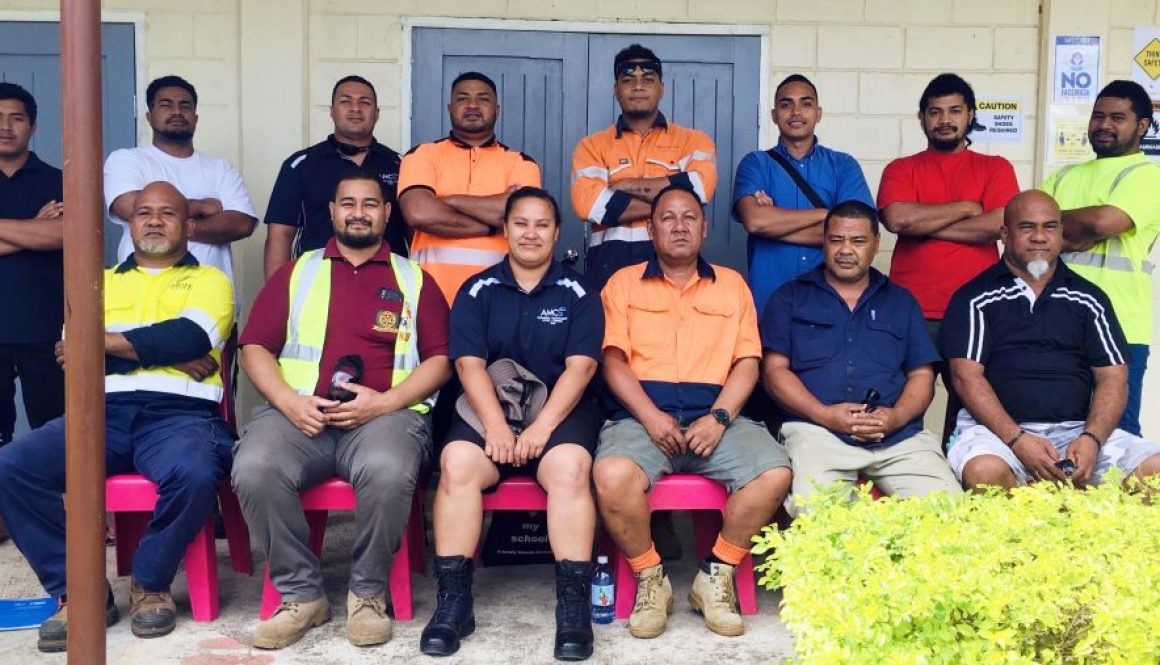Capacity Building on Good Servicing Practices for Lower Global Warming Potential and Flammable Refrigerants
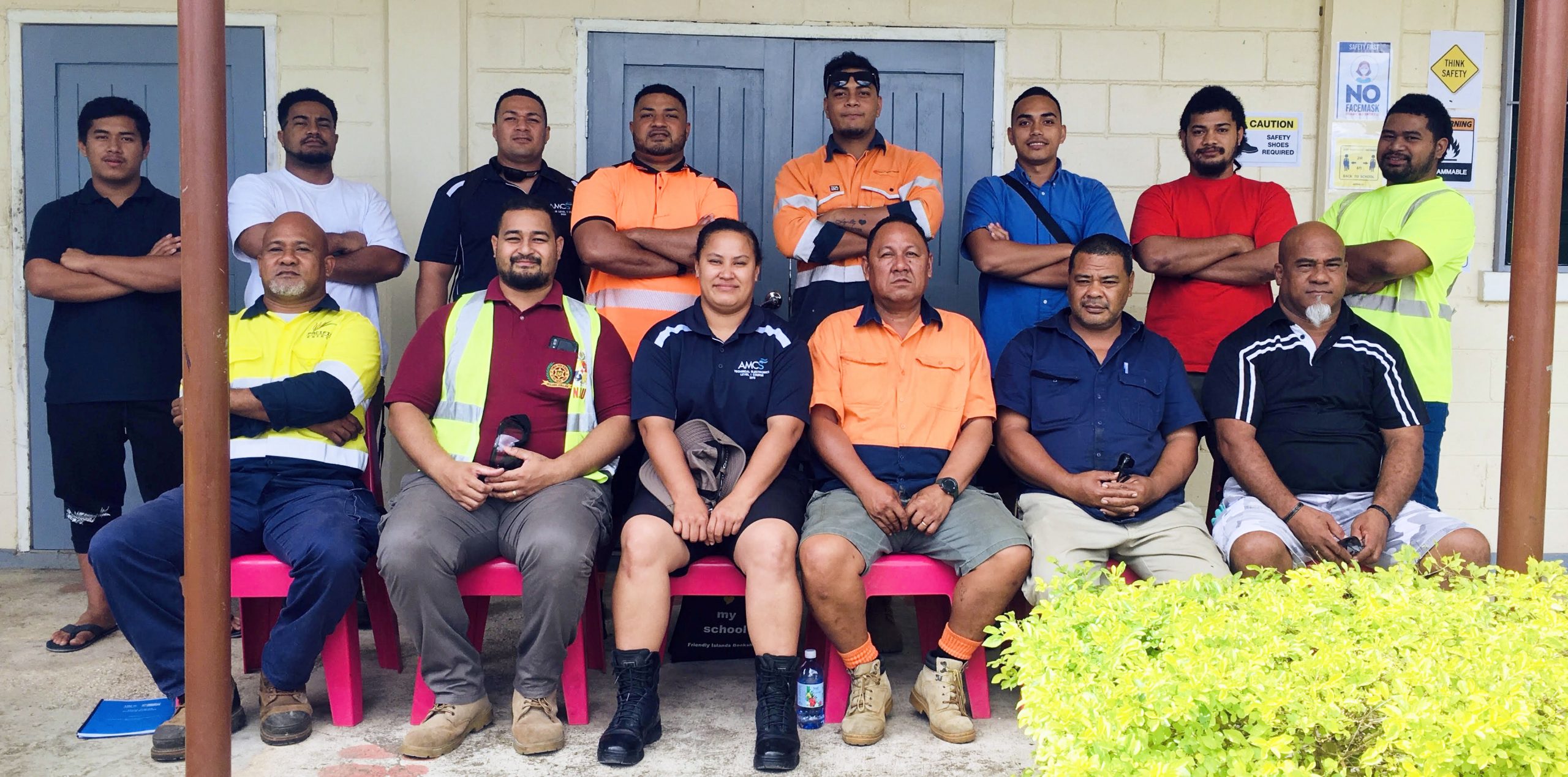
RAC technicians from different companies at the final day of the virtual practical workshop
On Tuesday the 7th and Wednesday the 8th of May, the ozone division from MEIDECC’s Department of Climate Change, in collaboration with UNEP Compliance Assistance Programme (CAP) organized a two days of virtual practical workshop for the members of the Tonga Refrigeration Engineers’ Association (TREA) at the Tonga Institute of Science and Technology in Maufanga, Tongatapu. The workshop is the practical part of a virtual theory training that was conducted earlier in May, 2021. Mr. Michael Moller, a master trainer and independent TVET consultant from Australia led the practical training via zoom meeting and was assisted face to face by Mr. Fatafehi Fakatava a local trainer from TREA.
The first day of the training focused on air-conditioning installation and good practices for reducing refrigerant consumption and emissions. Mr. Moller in his presentation emphasized the roles of a refrigeration technician. “Refrigeration technicians have a responsibility to their customers and the environment to prevent emissions of refrigerant to the atmosphere when installing, servicing and repairing refrigeration systems.” Said Mr. Moller
Furthermore, as per requirements of the Kigali Amendment, all member parties of the Montreal Protocol including Tonga will transition from high Global Warming Potential (GWP) to lower GWP refrigerants. The alternatives are flammable refrigerants which have entered our shores as such, the second day of the practical workshop was based on different servicing techniques for flammable refrigerants specifically R600 (Isobutane) and R32 (Difluoromethane), the most common types in Tonga and the Pacific.
Mr. Fakatava in the closing of the final day for the practical workshop reminded the technicians that the public and end users heavily rely on them for servicing of refrigerators and air – condition systems as well as preventing costly breakdowns from mechanical failures and refrigerant leakage. ‘Refrigerant leaking into the atmosphere due to careless work has adverse environmental effects. Directly by ozone depletion and climate change and indirectly by increasing energy consumption,” said Mr. Fehi Fakatava.
As a result of the workshop, the RAC Technicians are expected to have adequate knowledge and skills in installing, maintaining, and commissioning of air conditioning systems as well as receiving extensive information on the use of flammable refrigerants.
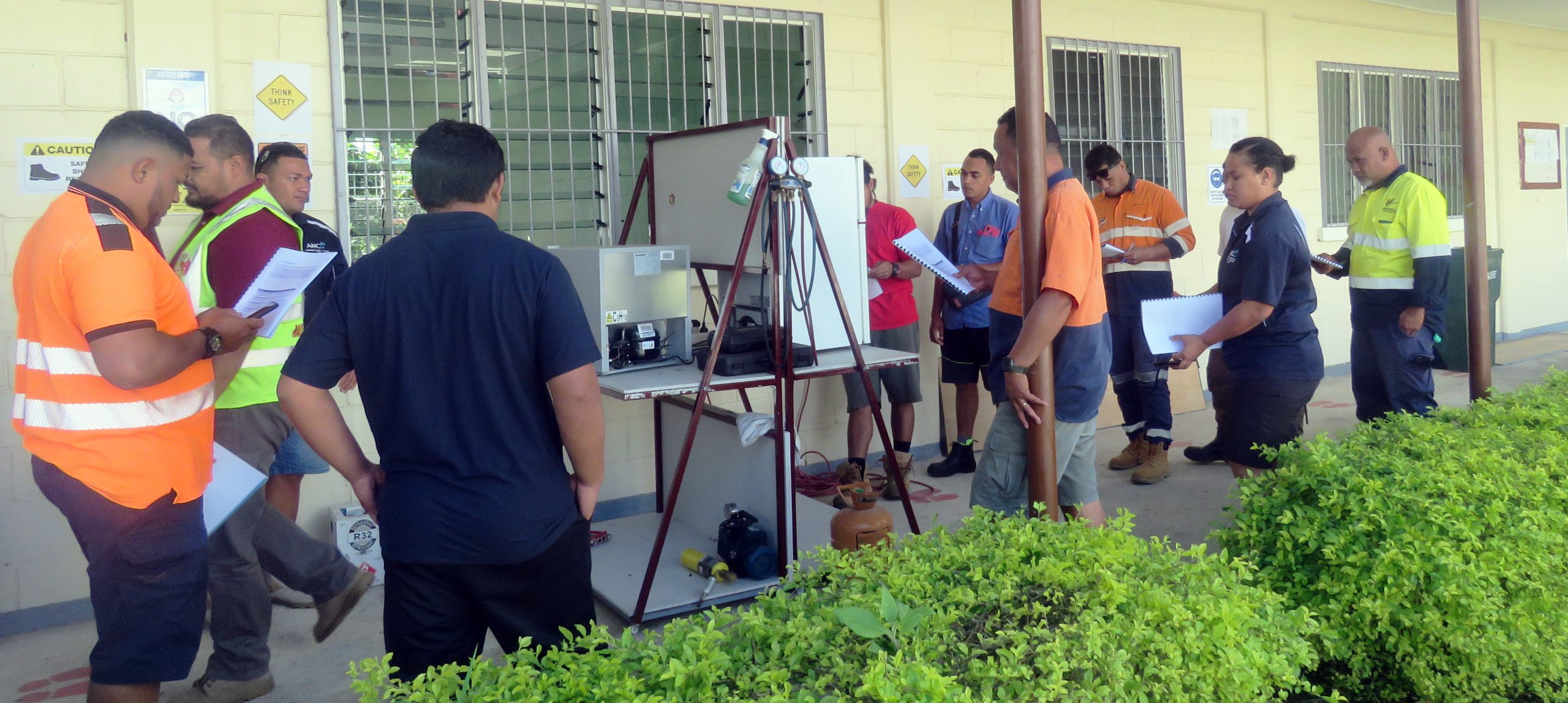
RAC Technicians during the good practice for flammable refrigerants
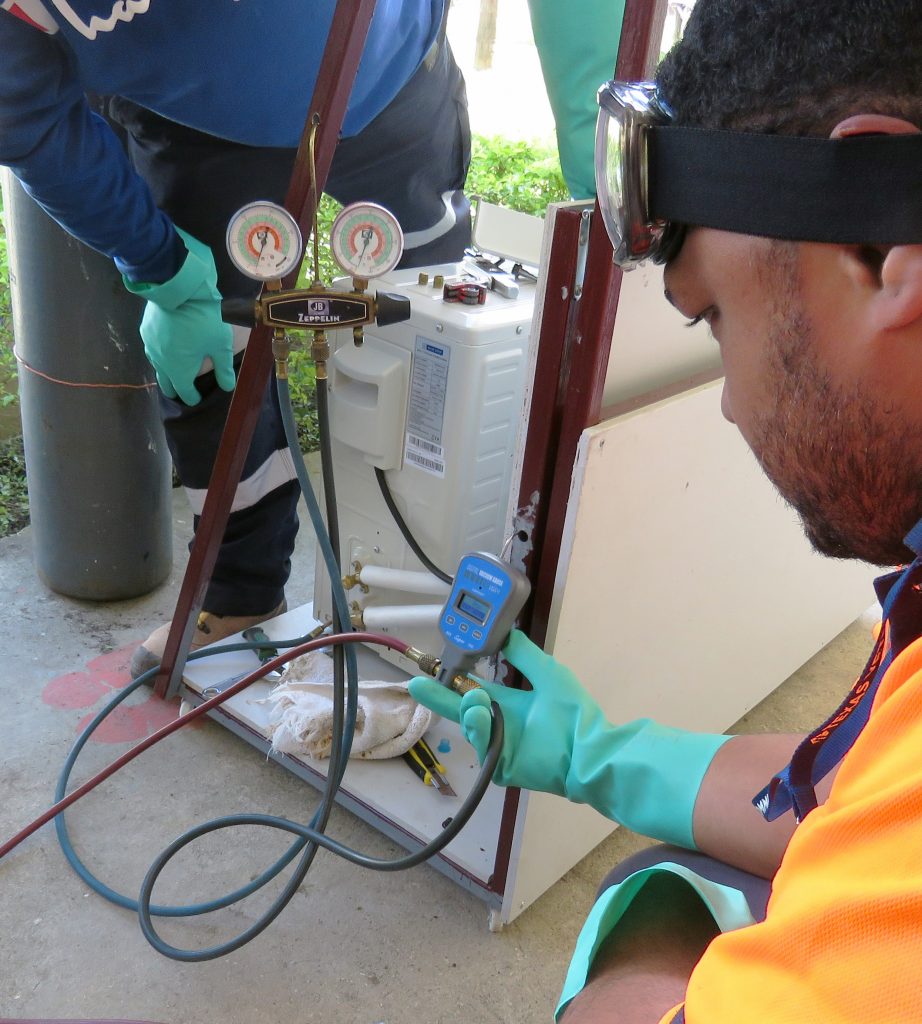
Pressure Testing of the system using a vacuum gauge and nitrogen gas
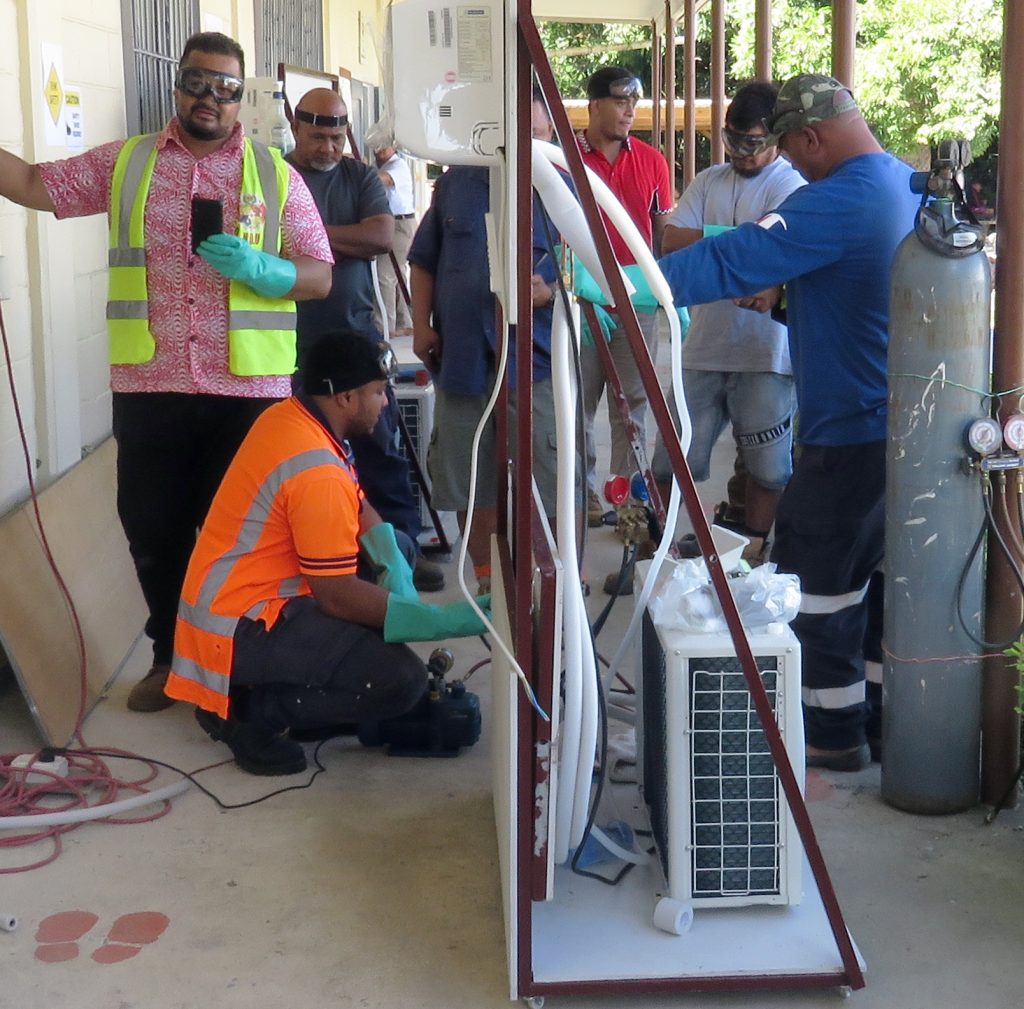
RAC Technicians during the installation of outdoor and indoor AC units
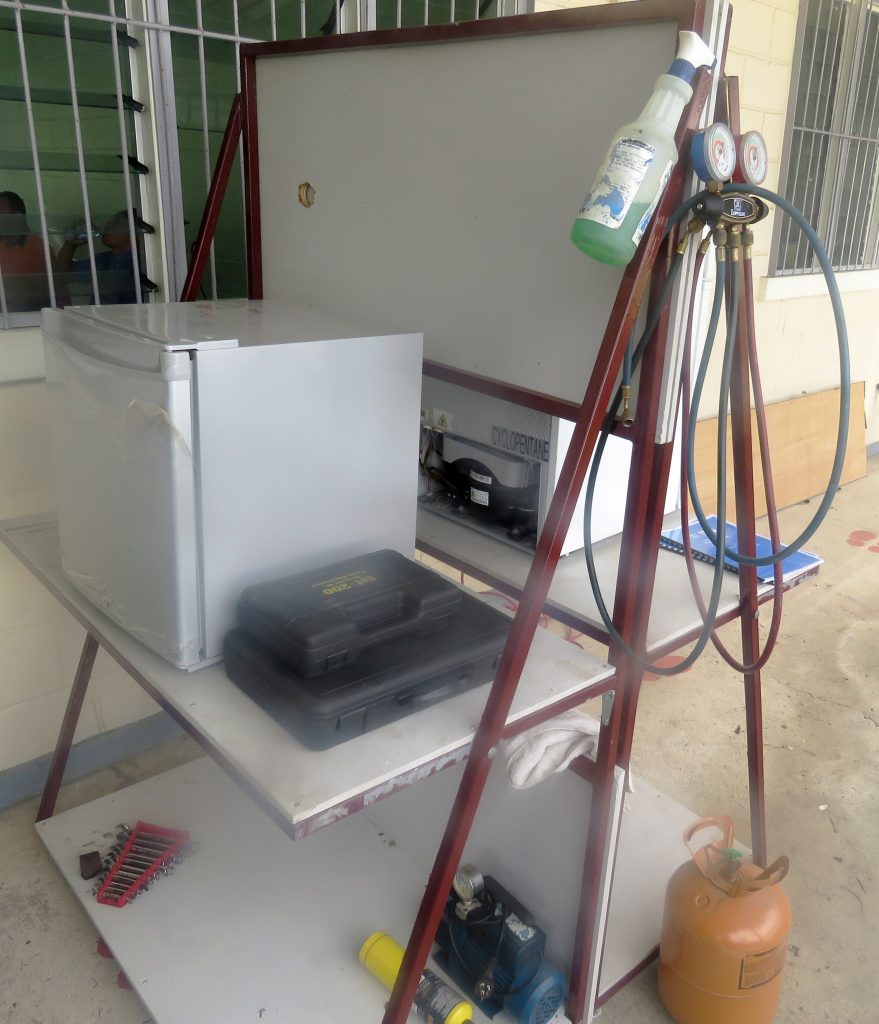
Work stations prepared by TREA
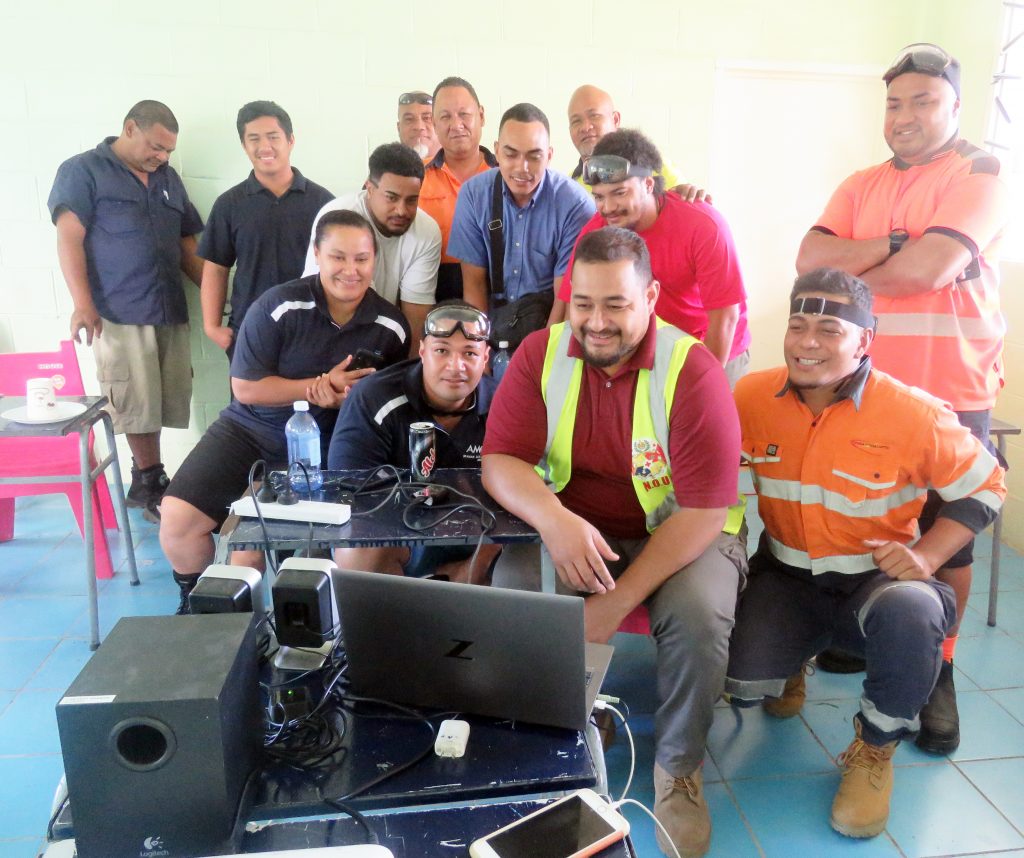
Trainees sharing the screen for a group photo with the master trainer

